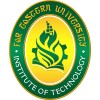Seminars and Trainings

Attendee
ISO 9001:2015 Retooling
Awarded by FEU Tech Quality Assurance Office on October 03, 2024
View Credential
Attendee
AI in the Workplace: Practical Applications for Educators and Associates to Improve Teaching and School Management
Awarded by Educational Innovation and Technology Hub on August 14, 2024
View Credential
Attendee
Review of Complex Engineering Problems
Awarded by FEU Tech College of Engineering on August 12, 2024
View Credential
Attendee
Data Privacy Act Awareness Seminar
Awarded by FEU Tech Human Resources Office on August 07, 2024
View Credential
Attendee
Nanolearning: Bite-Sized Content as the Next Big Trend in Contemporary Education
Awarded by Educational Innovation and Technology Hub on December 12, 2023
View CredentialResearch Publications
Conference Paper · DOI: 10.1109/HNICEM60674.2023.10589062
Flash'n Alert-Handheld Self-Defense Warning Device with Integrated Alarm System
2023 IEEE 15th International Conference on Humanoid, Nanotechnology, Information Technology, Communication and Control, Environment, and Management, HNICEM 2023, 2023
![]() Bayono M.E.P.
Bayono M.E.P.
![]() Manansala E.T.
Manansala E.T.
![]() Maribel A. Misola
Maribel A. Misola
![]() Jamie Adrian D. Jamasali
Jamie Adrian D. Jamasali
![]() Cabahug C.A.M.
Cabahug C.A.M.
![]() Cristobal J.J.C.
Cristobal J.J.C.
![]() Ladera A.M.D.
Ladera A.M.D.
![]() Mercado M.G.S.
Mercado M.G.S.
Personal safety is paramount in today's society, where crimes like theft and assault are prevalent. However, many self-defense tools are inaccessible or impractical for everyone. This creates a demand for innovative, user-friendly tools that can provide reliable protection in emergency situations. The Flash'n Alert, a handheld warning device with an integrated alarm system designed to empower individuals to protect themselves effectively. The Flash 'n Alert is a handheld device designed and developed with an activation button as input to the microcontroller that will trigger the four emergency modules - LED for high-intensity flashing of light, speaker for loud alarm, GPS to determine the location of the incident and GSM to send SMS to emergency contacts. This device combines a high-intensity flashing light with a loud alarm, deterring potential attackers and alerting nearby people in emergencies. When activated, the device emits a blinding flash that disorients attackers and provides an opportunity for escape. The accompanying alarm system grabs attention and signals an emergency in progress. Notably, the Flash 'n Alert also notifies emergency contacts, making it invaluable when the user is unable to call for help. With a simple activation button, this device is effortless to use. And with its two rechargeable battery feature, the Flash'n Alert is cost-effective and eco-friendly, ensuring it remains ready for use with its long-lasting battery life.
Conference Paper · DOI: 10.1109/HNICEM60674.2023.10589148
(Digital) Reading Free Vocational Interest Inventory Testing Tool
2023 IEEE 15th International Conference on Humanoid, Nanotechnology, Information Technology, Communication and Control, Environment, and Management, HNICEM 2023, 2023
![]() Moises F. Jardiniano
Moises F. Jardiniano
![]() Abella R.U.
Abella R.U.
![]() Bugtay A.M.Y.
Bugtay A.M.Y.
![]() Pineda K.M.P.
Pineda K.M.P.
![]() Reynoso Z.A.S.
Reynoso Z.A.S.
![]() Villanueva B.A.A.
Villanueva B.A.A.
![]() Jamie Adrian D. Jamasali
Jamie Adrian D. Jamasali
![]() Bayono M.E.P.
Bayono M.E.P.
Human curiosity and the pursuit of areas of interest are fundamental drivers of exploration and skill development. One avenue for understanding vocational interests is the Reading-Free Vocational Interest Inventory Third Edition (RFVII-3), particularly relevant for individuals, including those with mental disabilities. The RFVII-3 assesses vocational interests and aligns individuals with specific vocational clusters. However, its traditional face-to-face, one-on-one administration, and manual scoring present significant challenges, consuming approximately 1.5 hours. This paper presents a novel approach to streamline the RFVII-3 assessment process by developing a digital prototype. This device captures and scores RFVII-3 item images selected by examinees, instantly aligning them with relevant vocational clusters. The result is generated in less than five seconds after completing the last item, effectively expediting vocational interest assessment. This innovative technology promises to enhance the efficiency and accessibility of vocational interest assessment, particularly benefiting individuals with intellectual disabilities.
Conference Paper · DOI: 10.1109/HNICEM57413.2022.10109459
Microprocessor-Based Interactive Mathematics Learning Tool using Real-Time Computer-Vision
2022 IEEE 14th International Conference on Humanoid, Nanotechnology, Information Technology, Communication and Control, Environment, and Management, HNICEM 2022, 2022
![]() Galvez J.P.B.
Galvez J.P.B.
![]() Guerrero J.C.S.
Guerrero J.C.S.
![]() Hernani J.M.B.
Hernani J.M.B.
![]() Jamie Adrian D. Jamasali
Jamie Adrian D. Jamasali
![]() Nino U. Pilueta
Nino U. Pilueta
![]() Moises F. Jardiniano
Moises F. Jardiniano
When it comes to learning, there are beneficial effects of incorporating gestures in learning mathematics especially within the early ages of life. At first, we learn Math by counting and incorporating our fingers as a guide, as well as writing numbers along on a piece of paper. These gestures are known to be examples of hands-on learning experience for children. Aside from counting, they learn basic mathematical operations as well.Teaching children mathematics is not an easy task. The child's attentiveness plays a huge factor in the learning process. The average attention span of the child from 2 to 10 years of age is 20 to 30 minutes only. Making the learning interactive can help in maximizing the learning experience of the child within the timespan. Thus, we aim to develop a compact device that is interactive with children when it comes to learning basic mathematical operations such as addition, subtraction, and multiplication.This device has software that uses computer-vision and image detection as a way of teaching children math in an interactive way. The child has two different options of answering, by using hand gestures or premade printed numbers. The child is asked five random basic mathematical questions within a time limit. It has three levels of difficulty which the child must pass in order to progress each level. Furthermore, the software also has audio feedback as a way of letting the child know the correct answer. With these features, children are engaged in an interactive learning opportunity in mathematics.
Conference Paper · DOI: 10.1109/HNICEM57413.2022.10109384
Microprocessor-Based Interactive Mathematics Learning Tool using Real-Time Computer-Vision
2022 IEEE 14th International Conference on Humanoid, Nanotechnology, Information Technology, Communication and Control, Environment, and Management, HNICEM 2022, 2022
![]() Galvez J.P.B.
Galvez J.P.B.
![]() Guerrero J.C.S.
Guerrero J.C.S.
![]() Hernani J.M.B.
Hernani J.M.B.
![]() Jamie Adrian D. Jamasali
Jamie Adrian D. Jamasali
![]() Nino U. Pilueta
Nino U. Pilueta
![]() Moises F. Jardiniano
Moises F. Jardiniano
When it comes to learning, there are beneficial effects of incorporating gestures in learning mathematics especially within the early ages of life. At first, we learn Math by counting and incorporating our fingers as a guide, as well as writing numbers along on a piece of paper. These gestures are known to be examples of hands-on learning experience for children. Aside from counting, they learn basic mathematical operations as well.Teaching children mathematics is not an easy task. The child's attentiveness plays a huge factor in the learning process. The average attention span of the child from 2 to 10 years of age is 20 to 30 minutes only. Making the learning interactive can help in maximizing the learning experience of the child within the timespan. Thus, we aim to develop a compact device that is interactive with children when it comes to learning basic mathematical operations such as addition, subtraction, and multiplication.This device has software that uses computer-vision and image detection as a way of teaching children math in an interactive way. The child has two different options of answering, by using hand gestures or premade printed numbers. The child is asked five random basic mathematical questions within a time limit. It has three levels of difficulty which the child must pass in order to progress each level. Furthermore, the software also has audio feedback as a way of letting the child know the correct answer. With these features, children are engaged in an interactive learning opportunity in mathematics.


